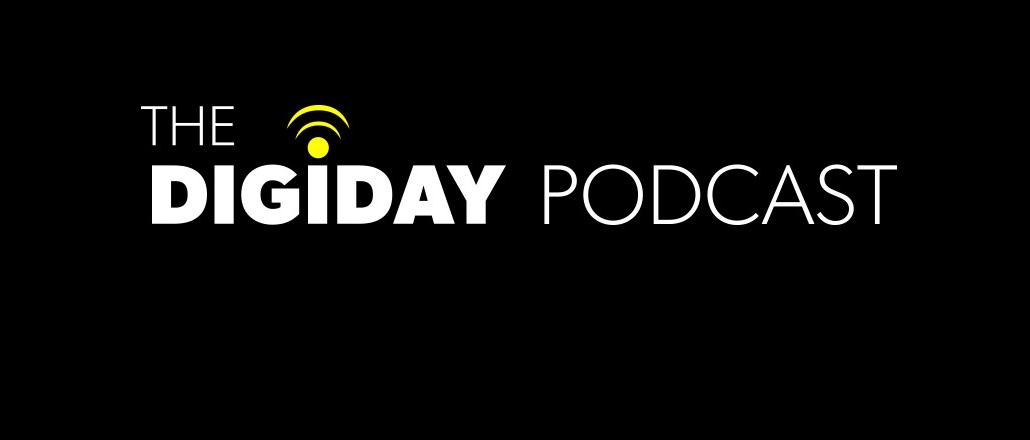
It’s been five years since Gerry Graf quit what he calls a “fantastic job” as chief creative officer at Saatchi & Saatchi to found Barton F. Graf 9000, the fiercely independent and strongly creative agency (named after his father). Graf — the “creative” side of the company — was soon joined by Barney Robinson, who brought with him a strong planning and business background from BBH. Together, the duo has made some of the culturally astute ads in the business for Kayak, Clash of Clans and Dish. They joined us on the Digiday Podcast this week to talk about startups, competition and Cannes.
On the creative-account dynamic…
One of the big reasons why Barton F. Graf has been as successful as it has been is the relationship between account and creative, say the duo. At the agency’s first pitch, which was for Dish, Graf, Robinson and ECD Eric Kallman were in the room together without anyone else. That’s unusual for pitches: agencies usually bring in teams with a half-dozen people.
“I wrote the strategy, Gerry and Eric blew them away with the creative work, and we won that business,” said Robinson. “But it was one of those moments that I suddenly realized who I partnered with: Gerry was halfway through the trashcan looking for the decks of the people who had presented before us.” It’s a good way to figure out who you’re up against, said Graf.
On being a “comedy” shop…
Perception is a big part of the agency business — consultants and clients both know potential agencies they want to partner with based almost entirely off word of mouth. For years, Graf was known as the “comedy guy,” until the agency did moving, serious work for an environmental activist group 350 Action. The agency actually spent some time trying to shake off the idea that it could only do one thing, said Graf.
“You want to be known as a place with great ideas. Not as the app place. Not the film place. Not the comedy place,” he said. “We win business because everyone comes into a room expecting these zany, crazy people. And we’ll start off talking strategy for the first hour. And I see the look on new clients’ faces where it’s like a talking chimpanzee, like “oh, you guys are smart.” And that’s when we win them over.”
On everyone starting their own agency/idea factory/creative consultancy…
It’s been a bit of a trend in the past year where well-known ad creatives like Mark Figliulo and Jeff Benjamin have quit the big-shop game to start their own companies. It’s more competition, sure, but Robinson and Graf both welcome it. Recalling the time when they first started out and Droga5 founder David Droga helped them out with rate card information and other startup-life problems, Graf said he welcomes the chance to give something back, because it’s lonely out there for a startup agency. Anything to keep the big shops away: “Why should the holding companies have all the fun?” said Robinson.
On the pointlessness of Cannes…
One of the consistent criticisms of Cannes, which has gone from a conference to a giant confluence of agencies, clients, ad-tech and media, is that there’s too much happening to actually get stuff done. For Robinson, Cannes is like “getting into a busy subway car when everyone’s up in your business and touching you inappropriately,” which usually doesn’t lead to much work actually getting done. But the point of the awards — supposedly the highest honor in advertising — has also been questioned by plenty of execs, including Publicis Worldwide CEO Arthur Sadoun. “My question for [Cannes organizers] is that when you’re in the business of selling the prestige of precious metals — gold, silver, Titanium — they’re only precious because they’re scarce,” said Robinson. “I’d be worried about it being devalued if I was running Cannes.”
On ad tech…
Where ad-tech meets creativity is a hot topic in the business. The promise of data-driven communication created programmatically, rendered in real-time is appealing, but how it meets good creative is still a bit up in the air.
“I’m actually very interested in the creative opportunity. Just the surface has been scratched on what creative possibilities could be in programmatic. So I find that very interesting,” said Robinson.
Podcast produced and edited by: Tanya Dua
More in Marketing

Zero-click search is changing how small brands show up online — and spend
To appease the AI powers that be, brands are prioritizing things like blogs, brand content and landing pages.

More creators, less money: Creator economy expansion leaves mid-tier creators behind
As brands get pickier and budgets tighten, mid-tier creators are finding fewer deals in the booming influencer economy.

‘Still not a top tier ad platform’: Advertisers on Linda Yaccarino’s departure as CEO of X
Linda Yaccarino — the CEO who was never really in charge.





